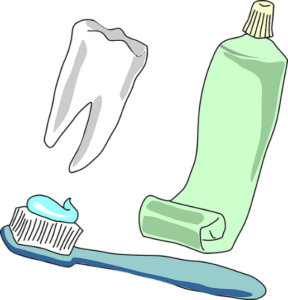Dentist 39503
 While brushing or flossing your teeth, do you notice blood on your toothbrush or in the sink? Swollen, red, or tender gums can bleed when brushing or flossing, even if you are brushing gently. While it may seem harmless, it is important that you do not ignore these symptoms as they may be signs of a more serious issue. Here are four reasons why your gums may be bleeding, and what you can do for prevention.
While brushing or flossing your teeth, do you notice blood on your toothbrush or in the sink? Swollen, red, or tender gums can bleed when brushing or flossing, even if you are brushing gently. While it may seem harmless, it is important that you do not ignore these symptoms as they may be signs of a more serious issue. Here are four reasons why your gums may be bleeding, and what you can do for prevention.
- Poor Oral Hygiene Habits
Brushing your teeth at least twice a day and flossing daily is recommended. However, this routine might still cause your gums to bleed. Bleeding gums can be a consequence of flossing too hard. Use soft bristle toothbrushes for a gentler cleaning.
- Smoking
Inhaling smoke can leave toxins on the teeth that irritate gums and cause them to bleed. Smoking can cause your immune system to be compromised, and prevent tissues from healing correctly. Quitting cigarette use will reduce bleeding gums. If you smoke, be sure to schedule an extra oral examination with our team to evaluate your gum health.
- Nutritionally Poor Diet
A healthy lifestyle is beneficial to every aspect of your health. Eating junk food high in sugar content can cause decay and lead to poor oral health. A balanced diet and proper oral hygiene can reduce the risk of bleeding gums.
- Gingivitis
Plaque and bacteria can build up on your teeth and become inflamed. Gingivitis is often symptom free. The one symptom that typically appears is bleeding gums, which is usually ignored because it is generally painless. Gingivitis is preventable by brushing your teeth at least twice a day, and flossing regularly to reduce plaque build-up. Schedule an appointment with us today if you suspect you have gingivitis.
If your gums regularly bleed, it is important that you contact our office. Our team can provide a complete oral examination and recommend proper treatment. Your oral health can significantly impact your overall health. For a healthy life, start by maintaining healthy gums.
To schedule your visit, please contact our office today.
15382-A St. Charles Street
Gulfport, MS 39503
(228) 832-5300



 Calcium is an important mineral for building strong, healthy teeth. Not everyone can tolerate the lactose found in dairy, which is often a prime source for calcium. There are a wide variety of options available to get the calcium you need. Here are six options rich in calcium:
Calcium is an important mineral for building strong, healthy teeth. Not everyone can tolerate the lactose found in dairy, which is often a prime source for calcium. There are a wide variety of options available to get the calcium you need. Here are six options rich in calcium: The human body is a network of interconnected systems and organs. Unfortunately, issues that impact one particular area of your body can also effect the health and function of other areas. Recently, studies have highlighted evidence for links between gum disease and heart disease.
The human body is a network of interconnected systems and organs. Unfortunately, issues that impact one particular area of your body can also effect the health and function of other areas. Recently, studies have highlighted evidence for links between gum disease and heart disease. Osteoporosis is a disease that affects roughly 10 million Americans, according to statistics from the National Osteoporosis Foundation. Additionally, another 44 million people are at an increased risk of developing the disease due to of low bone density. Symptoms appear in more than one-third of women over the age of 65. Fractures, pain, and mobility limitations can occur from osteoporosis. Understanding the signs and symptoms, as well as prevention methods, can decrease your chance of developing osteoporosis.
Osteoporosis is a disease that affects roughly 10 million Americans, according to statistics from the National Osteoporosis Foundation. Additionally, another 44 million people are at an increased risk of developing the disease due to of low bone density. Symptoms appear in more than one-third of women over the age of 65. Fractures, pain, and mobility limitations can occur from osteoporosis. Understanding the signs and symptoms, as well as prevention methods, can decrease your chance of developing osteoporosis. Maintaining your gum health is vital to your overall health. When you visit our office for an examination, our trained hygienists perform a periodontal exam. In fact, during your examination, our team is quietly assessing your oral health by performing a number of checks. Here’s what you need to know about periodontal disease.
Maintaining your gum health is vital to your overall health. When you visit our office for an examination, our trained hygienists perform a periodontal exam. In fact, during your examination, our team is quietly assessing your oral health by performing a number of checks. Here’s what you need to know about periodontal disease. Your smile is the first thing someone notices about you; it’s how you make an impression. A study by the healthcare group Bupa in 2015 found that more than a quarter of people avoid showing their smile in photos online because they aren’t pleased with the way their smile appears. The same study found that more than 80% of people believe that their smile is unattractive in photos.
Your smile is the first thing someone notices about you; it’s how you make an impression. A study by the healthcare group Bupa in 2015 found that more than a quarter of people avoid showing their smile in photos online because they aren’t pleased with the way their smile appears. The same study found that more than 80% of people believe that their smile is unattractive in photos. “Tooth worms” are the cause of tooth decay. That was the headline of a Sumerian text from around 5,000 B.C.E. Fortunately, the dental industry has evolved since then and we know “tooth worms” don’t exist. Here’s how dentistry has evolved into the comfortable, safe, and beneficial science of today.
“Tooth worms” are the cause of tooth decay. That was the headline of a Sumerian text from around 5,000 B.C.E. Fortunately, the dental industry has evolved since then and we know “tooth worms” don’t exist. Here’s how dentistry has evolved into the comfortable, safe, and beneficial science of today. Did you know your oral health can impact your overall health? We’ve compiled a list of 5 tidbits about your teeth and oral health.
Did you know your oral health can impact your overall health? We’ve compiled a list of 5 tidbits about your teeth and oral health. Discomfort and pain in your jaw, clicking while you talk or chew, and swelling on the sides of your face can be caused by Temporomandibular Joint Disorder (TMD). TMD can make talking and eating both painful and uncomfortable. Our team understands how TMD can make your day a challenge. We’ve compiled a list of helpful tips for managing TMD discomfort, but also encourage you to schedule a visit to see us for a full evaluation.
Discomfort and pain in your jaw, clicking while you talk or chew, and swelling on the sides of your face can be caused by Temporomandibular Joint Disorder (TMD). TMD can make talking and eating both painful and uncomfortable. Our team understands how TMD can make your day a challenge. We’ve compiled a list of helpful tips for managing TMD discomfort, but also encourage you to schedule a visit to see us for a full evaluation. If you are missing one or more teeth, our dentist may recommend a dental bridge. To help you understand what to expect, we’ve assembled a short guide to bridges.
If you are missing one or more teeth, our dentist may recommend a dental bridge. To help you understand what to expect, we’ve assembled a short guide to bridges.

